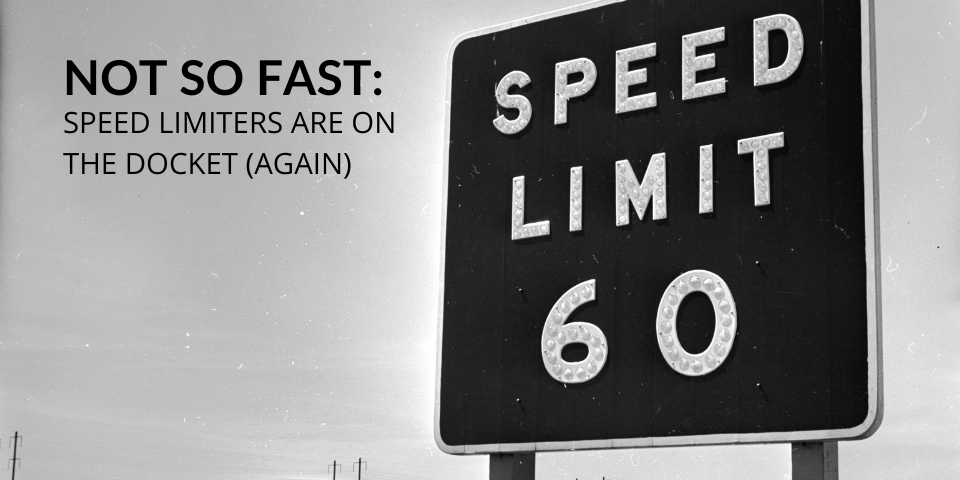In The News

Not So Fast: speed limiters are on the docket (again)
Recently, the Federal Motor Carrier Safety Administration (FMCSA) stated that it will once again attempt to mandate speed limiters for heavy trucks and other commercial motor vehicles. While the topic is currently in its opening discussion phase, the initial groundwork for such a mandate originally took root in a proposal from 2016. That proposal barely saw the light of day.
2016 Revisited
The 2016 proposed rule was jointly issued by FMCSA and the National Highway Traffic Safety Administration. That proposal never made it to regulation status and, at that time, hadn’t even come up with a proposed maximum on speed. The previous proposal would also have required limiters to be installed and set at the factory.
But the FMCSA is planning to place the limiter requirements on carriers. Bestowing the responsibility on such entities, they believe, will keep motor carriers compliant and help to curb any potential confusion as to who will ultimately be responsible for limiting speeds on their massive machines.
However, like with anything, there are two sides to the equation of safety and mandates.
Current Events
The National Transportation Safety Board, which does not have the ability to regulate but only to advise, recently called for the federal government to set acting standards for forward leading speed-limiting technology and to require all recently manufactured heavy vehicles to be equipped with these governing devices.
The American Trucking Association (ATA) has traditionally been the opposition to those who are pursuing to enact such a speed-limiting rule. One of the leading battlefronts in this back-and-forth brouhaha, is the ability to reach an agreement on setting a specific speed as to what’s regulated and accepted.
ATA currently supports a maximum set speed of 70 mph in trucks that are equipped with automatic emergency braking and adaptive cruise control. Its policy also supports a maximum set speed of 65 mph in trucks without those safety features in place.
More In the Mix
Another voice to be heard, and certainly not to be discounted, is coming from the Owner-Operator Independent Drivers Association. OOIDA has routinely raised concerns regarding the use of speed-limiters, due in major part to dangerous speed differentials between commercial motor vehicles and other vehicles that share the roadways.
The foreseen issue raises the concern that limiting speed on large trucks can often cause congestion on the highways, while also contributing to overly aggressive driving on behalf of the motorists who can’t seem to be patient behind a slower moving truck.
Road rage is a real thing. If a vehicle approaches a truck that has been limited to a speed which is significantly below the posted speed limit, the X-factor becomes that person in the opposing vehicle. Plain and simple, that driver may not understand (or care) that the truck in front of them is limited by a device that ultimately slows down the flow of traffic and may react in a way that increases the likelihood of an accident on the road.
So, while the actual governance of speed-limiters being required may not yet be front and center, it’s wise to check your rearview mirror because it’s something that is coming up fast.
